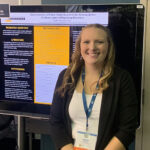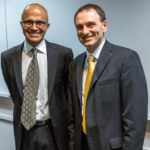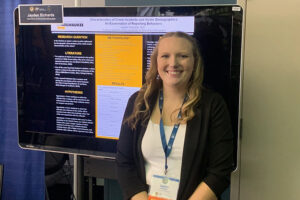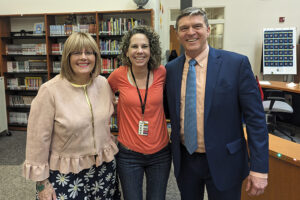The future can be glimpsed in India’s call centers.
That’s according to UWM sociologist A. Aneesh, who spent four months working in one and a year researching their operations for his latest book, Neutral Accent: How Language, Labor, and Life Become Global.
Aneesh has always been interested in international labor; his first book, Virtual Migration: The Programming of Globalization, examined the migration – both physical and virtual – of foreign software workers to the United States. Neutral Accent picks up where the previous book left off.
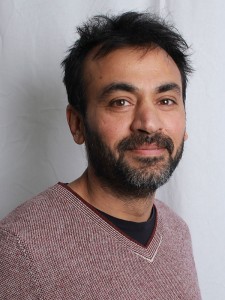
“Call centers become sort of emblematic of what everyone’s life will be,” said Aneesh, who worked in one while in India on a MacArthur Grant during the 2004-05 school year. “Many features of call centers are actually features of modern life, in some ways.”
Call center workers cater mainly to customers in western countries – Australia, Great Britain, and the United States, all of which are hours ahead or behind India’s time zone. Workers start their shifts in the late afternoon and get off in the wee hours of the morning. They must be flexible, adjusting to ever-changing work regimes.
The call center Aneesh worked in was doing a telemarketing campaign for a British company. He gave up the job because the hours were too difficult for his wife and then 3-year-old son.
“I was leaving around 4:30, 5 in the afternoon, before my son came back from daycare,” Aneesh said. “Then I would work and I would come back home at around 2 or 3 in the morning, and I would immediately go to bed. Everyone was sleeping already. And by the time I woke up, everyone was gone.”
In doing research, he found that aspect of call center culture was being replicated around the world as night and shift work becomes increasingly prevalent.
“There are so many workers working at night,” he said. “Not just nurses … or obviously emergency workers, or healthcare workers. But with a 24-hour economy, there is some startling evidence that this is becoming the majority norm in the west.”
Tellingly, prescriptions and over-the-counter drugs for sleep disorders have increased dramatically in the past decade.
Staying neutral
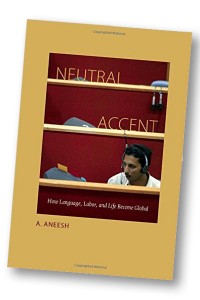 Or take a look at the title of the book – neutral accent. English is a second language for many call center workers, who are trained to place the emphasis on syllables in a cadence English speakers are familiar with and recognize common slang and idioms like “dude” and “geek.” Even the workers’ identities are neutralized; Sanjeet might go by the name Tim while he’s working because a familiar-sounding name plays better over the phone.
Or take a look at the title of the book – neutral accent. English is a second language for many call center workers, who are trained to place the emphasis on syllables in a cadence English speakers are familiar with and recognize common slang and idioms like “dude” and “geek.” Even the workers’ identities are neutralized; Sanjeet might go by the name Tim while he’s working because a familiar-sounding name plays better over the phone.
Now that communication and commerce are global, Aneesh predicts that speech and identity will increasingly need to be neutralized so people the world over can understand each other.
“We don’t know how what we are going to say will be (interpreted) by the other person in the end,” Aneesh said. “In the case of a cross-continental, over-the-phone conversation, where there’s no body language and no cultural norms in place, how can you communicate?”
The answer is carefully and neutrally – especially if you’re calling American households during the evening when families are having dinner.
“Most of us agreed that the callers from Britain were actually very polite people – polite in the sense that they would hear the full rap before saying no. They wouldn’t hang up on you; they wouldn’t curse or say racial slurs,” Aneesh said. “I was frankly very surprised because Americans turned out to be the most rude. Then I realized the reason was that the divide between the public and private time is not as rigid or strict in other countries, such as England or Australia. But Americans have a very clear sense of privacy and dislike calls during either the morning hours or evening hours, which are their private times.”
Going digital
All of us, however, are being changed by new technology used at call centers.
“It’s not the agent who’s dialing the number; it’s a software program called a dialer that chooses a number based on data culled from customer relations databases. It picks up that you’re a certain age, certain demographic, living in a certain area, and you might have certain needs,” Aneesh said.
Dialers examine our digital profiles, established through tax forms, credit history, medical reports and more.
“In the previous book I came up with the idea of ‘algocracy,’ which means governance through algorithms,” Aneesh said. “The algorithms decide who to call. For that to happen, a certain digital system identity has to be built up, in contrast to a social identity. I realized that most of us have system identities. We don’t think that way, but in the future that may have even more effect on our life chances than our social identity.”
Aneesh’s book is available at http://amzn.to/1dnvQCe.

